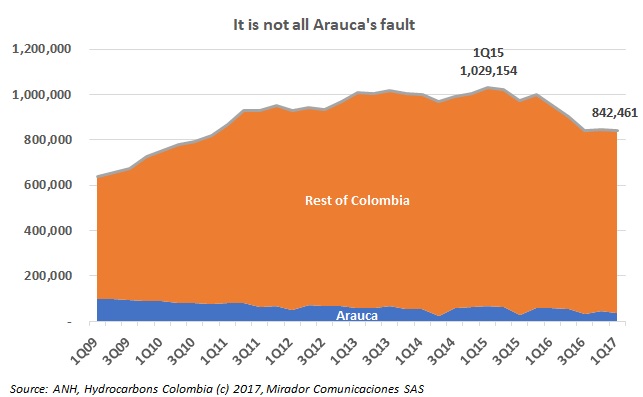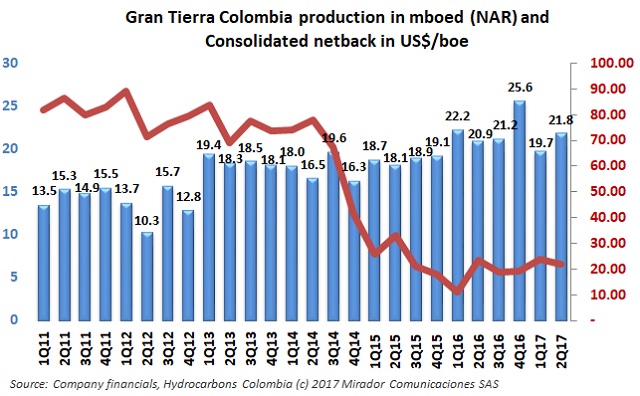The government showed its commitment to comply with the Paris Agreement and increase eco-friendly initiatives in Colombia, but oil spills in Nariño and Magdalena were a cause for concern among the locals.
Industry and Community Action Board (JAC) representatives met in Puerto Gaitán to discuss social issues and CSR projects. The local Municipal Administration said “yes to oil, but with responsibility.”
Illegal actions against Ecopetrol (NYSE: EC) infrastructure remain a major headache for the NOC. The company denounced a new violent incident at its facilities in the department of Meta.

Monthly oil production this year has been consistently lower than that of 2016. The two usual explanations are ELN attacks on the Coveñas / Caño Limón (CCL) pipeline and the general malaise of the industry driven mostly by lower oil prices.
The boom in anti-oil and mining referendums is generating a lot of uncertainty with companies and investors. Juan Manuel Santos, President of Colombia, spoke about this issue (for the first time in a while) in a business meeting.

Gran Tierra Energy Inc. (TSX: GTE) announced its financial and operating results for second quarter of 2017. The company highlighted that its production increased and it had strong financial performance, despite reporting net loss during 2Q17.
A draft decree from the Ministry of Environment (MinAmbiente) turned on the alarms for the oil, electricity and infrastructure sectors.
The union said that protests have been taking place in the departments of Sucre and Cesar to reject the alleged breach of agreements by companies like Canacol, Ecopetrol (NYSE: EC) and Cenit.
Corruption cases in Colombia are unfortunately common and there is a new one emerging. The Colombian Attorney General’s office conducted an investigation against Cúcuta former judges, whose decisions affected Ecopetrol (NYSE: EC).
Local authorities spoke about the city’s progress towards becoming an important offshore operation center in the Caribbean region.